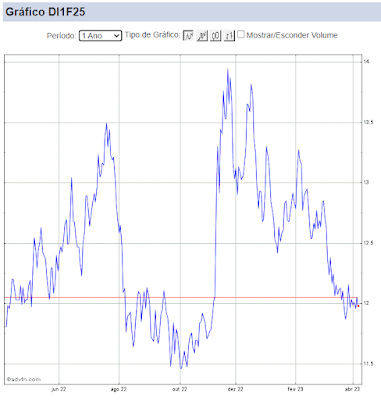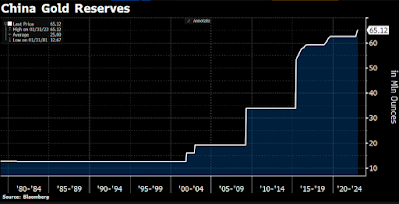EUA - Minutas do FOMC: Alguns comentários.
As Minutas do Fed mostram um Comitê mais
convicto no cenário de recuperação do crescimento, mais preocupado com o aperto
do mercado de trabalho e do nível de preço dos ativos financeiros, além de mais
confiante da evolução dos “custos do trabalho”. Abaixo, compilei algumas
passagens que mostram que as expressões utilizadas pelos mais hawkish apontam
para uma quantidade maior de participantes do que as expressões utilizadas
pelos participantes mais dovish.
De maneira geral, achei as Minutas em
linha com os dados recentes e um pouco mais hawkish, abrindo espaço para mais
altas de juros este ano.
O mercado, por ora, está reagindo como
se as Minutas tivessem sido mais dovish. Consigo explicar este movimento como:
(1) Um risco que talvez tenha saída da frente no curto-prazo, (2) O mercado
esperava algo mais hawkish ainda, ou (3) reação pontual, puxadas por fluxos
pontuais e “robôs).
As Minutas em nada alteram meu cenário
base. Os mercados financeiros globais me parecem estar passando por um momento
de acomodação após a piora verificada recentemente.
Financial
Inbalance:
Regulatory actions and improved risk
management in recent years had put the financial system in a better position to
withstand adverse shocks, such as a substantial decline in asset prices, than
in the past. However, amid elevated asset valuations and an increased use of
debt by nonfinancial corporations, several participants cautioned
that imbalances in financial markets may begin to emerge as the economy
continued to operate above potential. In this environment, increased use of
leverage by nonbank financial institutions might be difficult to detect in a
timely manner. It was also noted that the Committee should regularly reassess
risks to the financial system and their implications for the economic outlook
in light of the potential for changes in regulatory policies over time.
Wage
Pressure:
During their discussion of labor market
conditions, participants expressed a range of views about recent wage
developments. While some participants heard more reports of wage
pressures from their business contacts over the intermeeting period,
participants generally noted few signs of a broad-based pickup in wage growth
in available data. With regard to how firms might use part of their tax savings
to boost compensation, a few participants suggested that such a
boost could be in the form of onetime bonuses or variable pay rather than a
permanent increase in wage structures. It was noted that the pace of wage gains
might not increase appreciably if productivity growth remains low. That said, a
number of participants judged that the continued tightening in labor
markets was likely to translate into faster wage increases at some point.
Labor
Market:
Many participants reported that
labor market conditions were tight in their Districts, evidenced by low
unemployment rates, difficulties for employers in filling open positions or
retaining workers, or some signs of upward pressure on wages. The unemployment
rate, at 4.1 percent, had remained near the lowest level seen in the past 20
years. It was noted that other labor market indicators—such as the U-6 measure
of unemployment or the share of involuntary part-time employment—had returned
to their pre-recession levels. A few participants judged that
while the labor market was close to full employment, some margins of slack
remained; these participants pointed to the employment-to-population ratio or
the labor force participation rate for prime-age workers, which remained below
pre-recession levels, as well as the absence to date of clear signs of a pickup
in aggregate wage growth.


Comentários
Postar um comentário